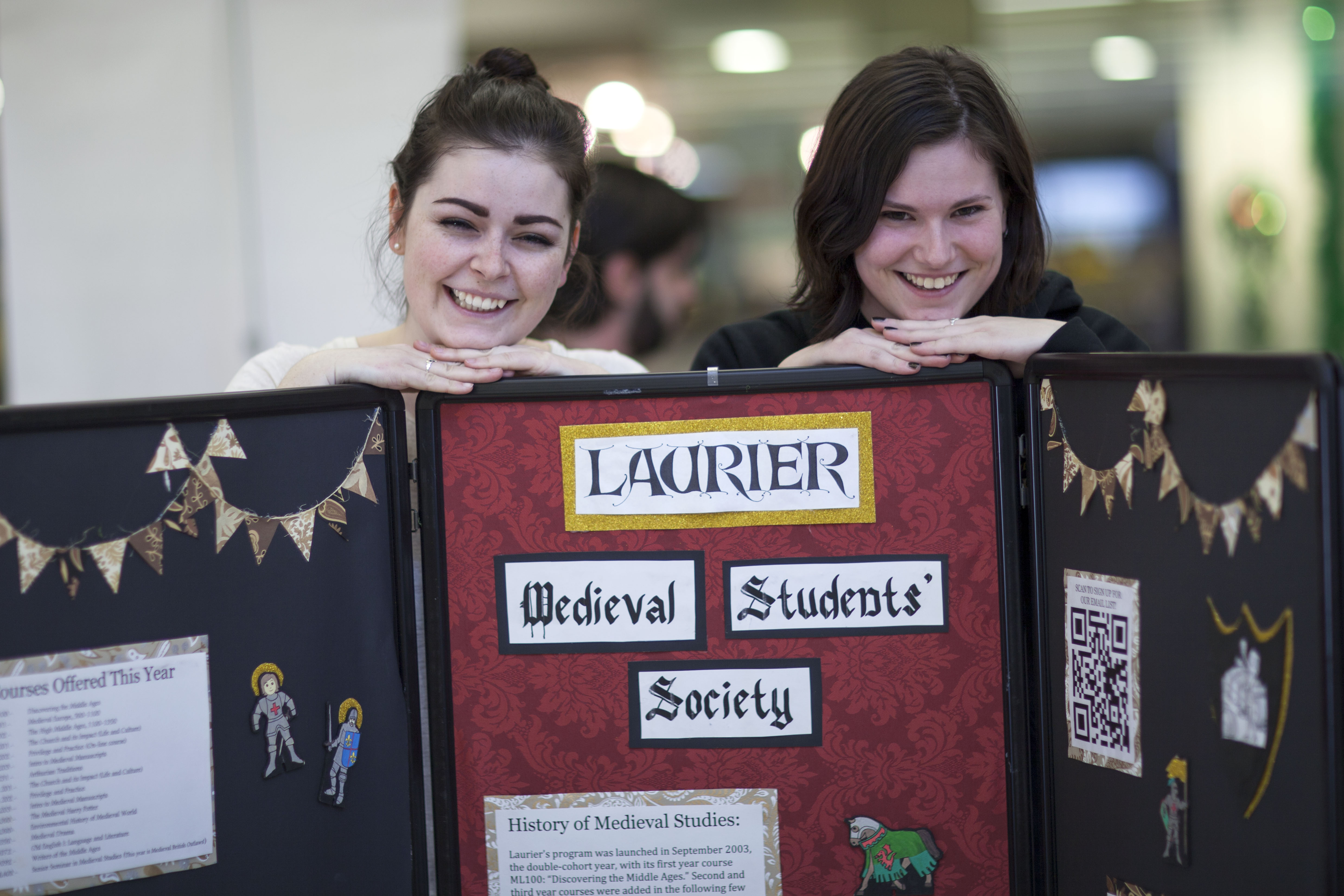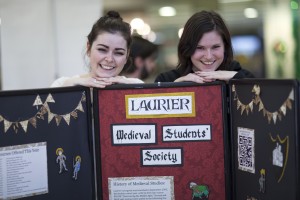Awareness brought to arts degrees


Stereotypes are inherent within any faculty and have the ability to make students feel undervalued. But one professor is seeking to change the negative perception of the arts through awareness and appreciation.
Last Thursday, Wilfrid Laurier University hosted the first ever Arts in Action event, organized by English professor Maria DiCenzo and assisted by the Council for the Intellectual and Cultural Development of the Arts (CICDA).
“The idea came from talking to students … they were impressed with my optimism for the arts. I responded that I was impressed with their degree of engagement with the arts, so I said I think we need to go public with our enthusiasm,” explained DiCenzo.
Panelists, including Laurier alumni, faculty and community professionals, discussed the value of the arts in the workforce, while booths promoted services and clubs available to students through the faculty of arts.
Christina Shirley, a Laurier student, stood at the English and film studies booth, advocating for the department and faculty as a whole.
“Arts students tend to be told by outside people that the arts are kind of useless and that you’re not going to get a real job … It’s really important to fight that stereotype and show people that’s not all that we do in the arts,” she said.
Acknowledging and defeating stereotypes associated with arts degrees was the central message of the day. DiCenzo wished to show students, both within and outside the faculty, that arts are valuable for many reasons.
CICDA president Thomas Ebeyer endorsed her mission.
“The knowledge is important, but for me especially I see it’s the transferrable skills,” he explained.
“The ability to critically think, to form your own opinions, the ability to engage with issues, the ability to understand complex theories and sort of make sense of the abstract in terms of practical living experience.”
Panelists throughout the day reaffirmed the idea that these transferrable skills are vital in any field — whether it be business, science or the arts.
Many even earned degrees in both arts and business, proving that in reality the two faculties are not rivals, but partners.
“I think we’re just influenced too much by these very misleading perceptions from the media. Parents are afraid their children won’t get jobs if they’re in the arts,” DiCenzo said.
This was the first time for the event, but hopefully not the last. DiCenzo hopes to continue helping students make informed choices about their future.
“It’s an opportunity for students to find out about courses, options, about the services that are here —the writing center, the library, career services. It’s kind of a one-stop shop and a great day to take advantage of. Especially the beginning of March, when students will soon be making choices about courses in the next number of weeks. So maybe we can make this more of a regular thing,” she continued.
Though student involvement was not as strong as DiCenzo and Ebeyer would have liked, the event was well-received by those watching. Third-year English major Sarah Mathews found the event to be “profoundly valuable,” as she has experienced the stereotypes they wished to combat.
“When I describe that I’m in literature, I don’t want my nose to be pointing at the ground because people think I don’t have anything valuable to say as a result of what I study. And I think part of what that event would advocate is that my value is equal to someone in economics, even though we don’t study the same concepts,” Mathews said.
“What you study is not necessarily a reflection of what you can accomplish. I think that’s what the event would more or less come to involve the arts students with … the perception that I didn’t choose English because I was too stupid for another subject. I chose a passion.”


